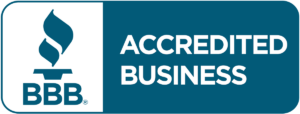Does your loved one’s kitchen counter resemble a small pharmacy? It can seem like a new medication is being added once a month, and the fact is that as an adult ages, they usually require that new medications be added to their daily regimen.
As a family caregiver, this can put additional stress on you with one of your key responsibilities: medication management. Research shows that each year more than a third of all seniors over age 65 have at least one adverse reaction to a medication.
Seniors’ bodies process and react to medications much differently than younger adults. For example, their liver and kidneys don’t remove drugs as easily as they once did; and muscle and fat distribution changes also occur. These factors are contributors to seniors being prone to more medication-related problems.
Symptoms of Medication-Related Problems
How can you tell if a loved one is experiencing any medication-related difficulties? Here are some symptoms seniors display that could indicate that there is a problem:
- Confusion
- Depression
- Insomnia
- Falls
- Drowsiness
- Incontinence
- Muscle weakness
- Dizziness
If you observe these symptoms and have any concerns about the health of your loved one, contact their doctor immediately.
Helpful Tips for Medication Management
If you’re new to medication management, here are some helpful tips from experienced caregivers that will help safeguard against problems and give you more confidence in managing your senior’s medications.
Make a List
This is the easiest way to keep track of your loved one’s medications. Write down:
- Medication name
- Strength or dose
- Instructions from the pharmacist and written on the bottle
- Any other important information
Once you’ve made your list, share it with your loved one’s doctors to ensure that all of the medications being taken can work together and that there won’t be negative drug interactions and side effects.
Place your list in an easily accessible place (in a cabinet or on the fridge) and give copies to at least two family members or friends. Keep the list up to date as medications given can frequently change.
Use Pill Boxes
There’s no better way to keep medications organized than using pill boxes. These boxes have compartments labeled by the day of the week, and some have several rows of compartments for medications taken at different times throughout the day.
Using pill boxes also helps you develop a regular routine which will help ensure that medications are taken at the right time, in the proper dosages. To help establish the routine, have your loved one take medication at times they regularly perform other tasks, like eating breakfast, brushing their teeth, or at bedtime.
Use One Pharmacy
Using one pharmacy helps prevent drug interactions and makes getting refills easier. Most pharmacies offer automatic refills and will send you phone or text message reminders. When you’re at the pharmacy, ask your pharmacist any questions you have about medication refills or possible over-the-counter treatments.
Synchronize Medication Refills
As a caretaker, you’ve got plenty to do every day. To make things a bit easier and more convenient for you, ask your pharmacist to refill all of your loved one’s long-term medications on the same day. You’ll be able to make a single trip to the pharmacy, and it will make it easier for you to stay on track with their medications.
Talk and Observe
Statistics show that as many as 75 percent of older adults don’t take their medications correctly. If you’re concerned about this, when talking with your loved one ask them to tell you which medications they’re taking, how often they’re taking them, and at what time of day. Look for extra pills in bottles or unfilled prescription refills.
Need Help With Medication Management?
One of the services we offer at AmeriCare Plus is medication reminders. Our highly trained caregivers and home health aides understand the importance of helping independent seniors take their medications as prescribed.
Get started today by scheduling an in-home visit for a free assessment by completing this form or calling (844) 407-CARE. We’ve been helping families in Virginia for over 25 years, and we’d love to help you and your loved one.
Continue Reading
Get a personal assessment.
Call us today at 1.844.407.2273
Schedule your free, no-obligation assessment today!








